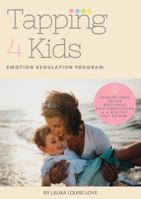“I’m a parent of a child with Autism… what is your superpower?” – Anon.
Have you ever thought about the challenges that parents of children with an Autism Spectrum Disorder (ASD) face on a daily basis? While many disabilities are visibly obvious, the abnormalities inherent in ASD are inside the skull and consequently invisible to the naked eye. Due to the ‘normal’ appearance of these individuals many people have misconceptions, opinions and sometimes judgements when it comes to ASD. Knowledge is power and this article will help shed a light on this very real disorder which impacts the lives of 1 in 85 Australian children with a diagnosis. ASD is a lifelong neurodevelopmental disorder that affects the way a person interacts with their environment and other people. In essence due to the way their brains are wired they see and experience the world from a different perspective.
While early identification and intensive therapy can assist children to function and cope better with everyday life – these children still find many aspects of the human experience difficult to navigate. It’s understandable then that these children can have meltdowns and difficulty coping with many of the activities as well as interactions that neuro-typical children take for granted. Many children start displaying symptoms early on in life and it can be very difficult for parents and those around them to come to terms with this disorder so it is important to be compassionate towards all involved – as it isn’t an easy process.
This short True or False section below clears up some commonly held myths/misconceptions about ASD;
- Kids with Autism should be able to easily socialise and play– just like the average child False! – Social play is one of the most difficult situations for children with Autism, they also have some impairments with (theory of mind) reading social cues and understanding the perspectives of other people.
- Autism is a result of poor/bad parenting False! – Definitely not! It is a very real, diagnosable disorder, parents frequently have typical children also that show ‘normal’ behaviour alongside a child with ASD.
- Children with Autism diagnosis can present quite differently from one another True – Under the new diagnostic criteria children can have Autism which is mild, moderate or severe – which is why it is called a ‘spectrum’. Children with Autism vary in the intensity of their sensitivities and symptoms. Special interests, sensory sensitivities and rigid repetitive patterns of behaviours can manifest at different levels.
Fantastic Book ‘David’s Gift’ by Sally Thibault is one mothers raw, very personal story of the challenges involved with raising a child with ASD right through to adulthood and is a real insight for anyone wanting support as well as wanting to know more about the difficulties parents face on a daily basis. If you would like some support yourself there are also some great online communities on facebook for support like ASD Matters. You don’t have to go it alone!





Leave a Reply